SB Insight blog
Explore the latest insights and trends in sustainability, marketing, and communication with SB Insight. Our blog offers news, articles and updates to help you stay informed and inspired. Read now our newest article!
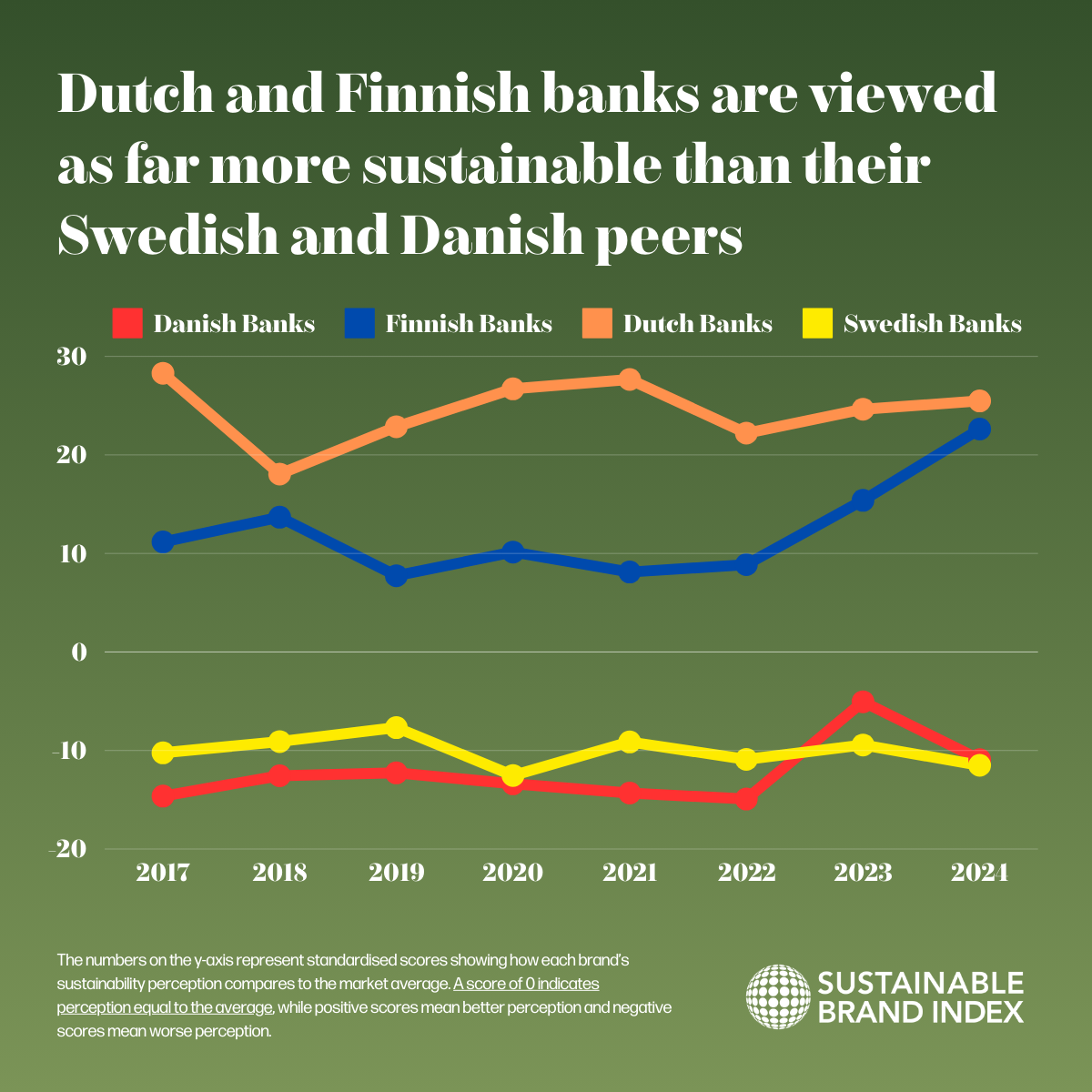
Key Sustainability Insights from Recent Data Nuggets
Discover 15 key insights on how brands like Vattenfall, Tesla, IKEA, and Georg Jensen are performing in sustainability perception. Learn which trends are driving consumer trust in 2024.

Tracking changing consumer priorities on the Global Goals in Sweden, Norway, Denmark, Finland, and the Netherlands
Understanding Northern Europe’s Evolving Consumer Views on Corporate Sustainability
According to Sustainable Brand Index data collected in 2019, 2021, and 2024, consumers from Sweden, Norway, Denmark, Finland, and the Netherlands are calling for companies to prioritize key Sustainable Development Goals (SDGs). This evolving sentiment highlights the growing demand for corporate responsibility, with specific focus on climate action, responsible consumption, and social equity across these nations. But which SDGs do consumers care about most, and how have their priorities shifted over time?
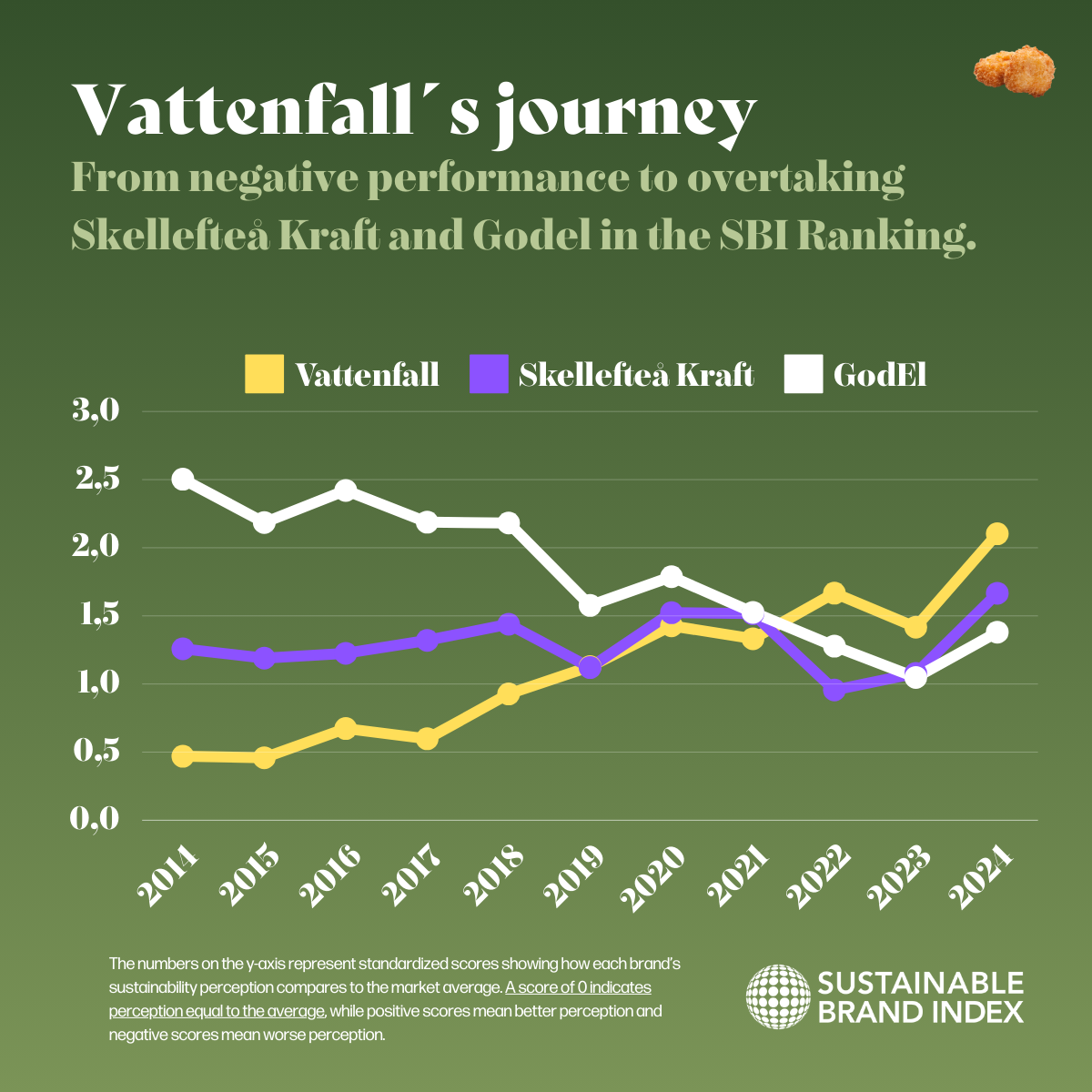
Vattenfall´s incredible journey from sustainability villain to sustainability leader in energy
The Swedish energy giant Vattenfall has gone through somehwhat of a renaissance of the past decade. From being viewed as a villain by consumers, to becoming a beacon of sustainability and showing the way forward.

Why the Circular Economy is a Priority for Nordic Consumers | Sustainable Consumption Trends
As the dialogue on sustainability intensifies, the concept of the circular economy has emerged as a crucial topic, particularly in the Nordic countries. This evolution highlights a growing consumer preference for sustainable living practices that extend beyond traditional recycling methods.
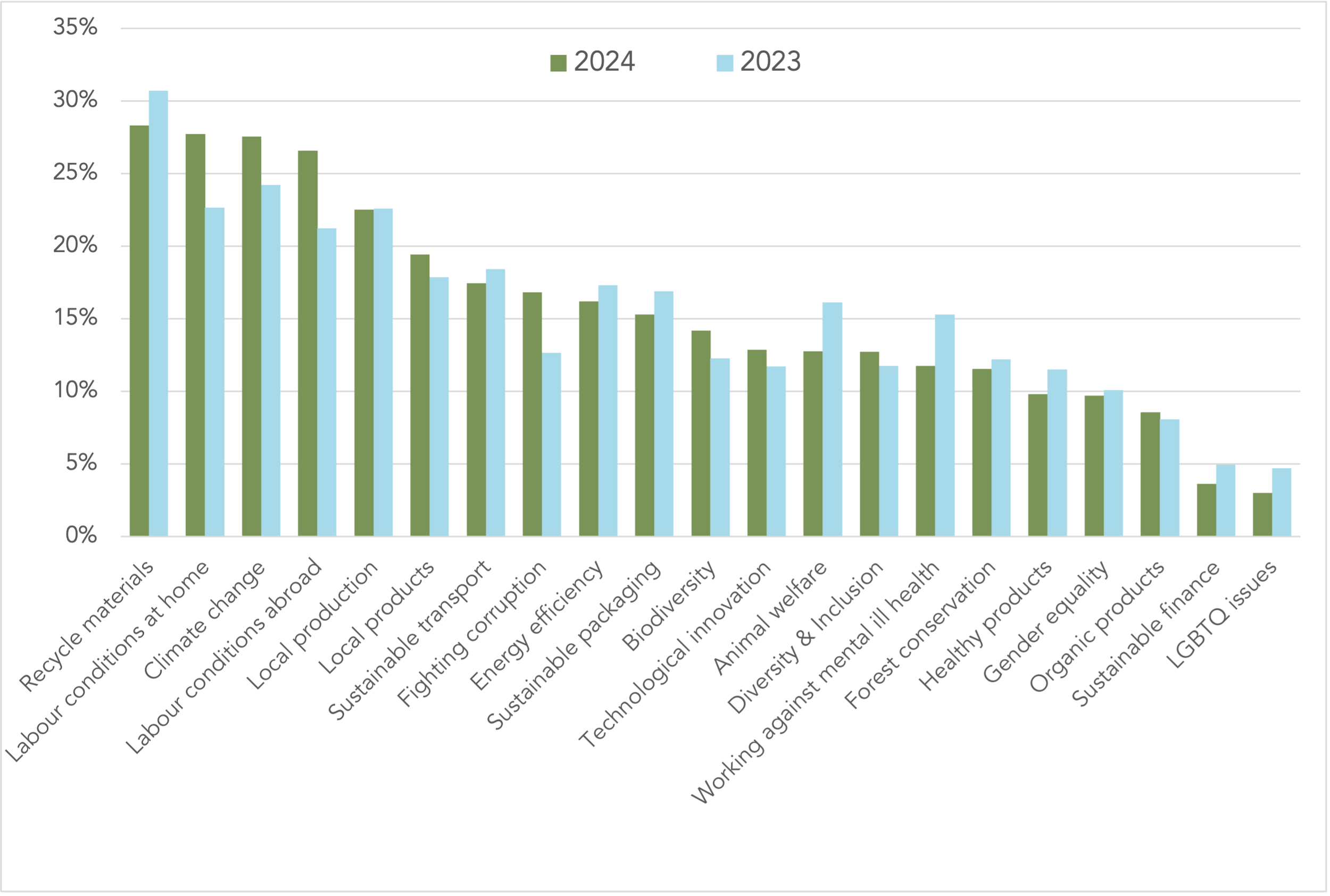
2024 Consumer Priorities in Sustainability: Key Shifts in Climate, Labour, and Ethics
Discover the major shifts in consumer priorities for 2024, focusing on sustainability. Explore why labour conditions, climate change, and anti-corruption efforts are now at the forefront of consumer expectations and how companies can adapt to these evolving demands.

Why Authenticity in Sustainability Communication Is Crucial in 2024
Why Authenticity in Sustainability Communication Is More Crucial Than Ever

Swedes express low confidence in government and opposition's commitment to sustainability
Only a minority of Swedish citizens believe that the government and opposition are taking sufficient responsibility for sustainable development. The results fro Sustainable Brand Index show that only 29% of respondents believe that the government is taking sufficient responsibility for sustainable development. For the opposition, the figure is even lower, with only 25% of Swedes viewing their efforts as sufficient.

Sustainability shortfall: Nordic consumers unimpressed with the business sector efforts
Only 30% of Swedish and Norwegian consumers and 35% of the Finnish consumers consider that the business sector is taking enough responsibility when it comes to sustainability. The latest research by SB Insight indicates that a mere third of the citizens in Sweden, Norway, and Finland think that companies in the respective countries are sufficiently promoting sustainable development.
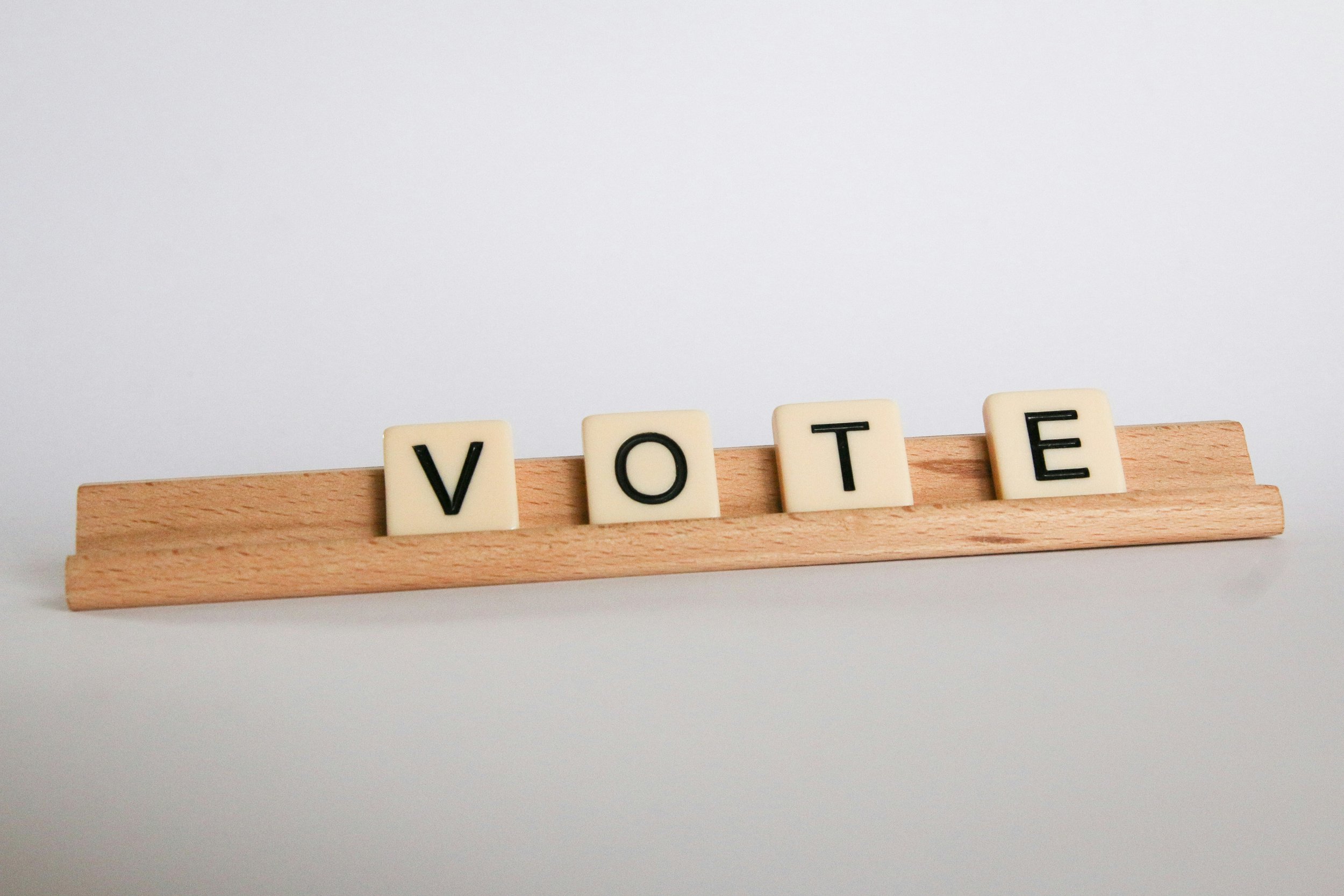
Swedish consumers unsure about EU's commitment to sustainability as the 2024 EU election draws closer
Moving closer to the 2024 European Union elections, there's a growing concern among Swedish consumers on the EU's commitment to sustainability. According to recent research by the Sustainable Brand Index, only 36% of Swedes feel the EU is effectively addressing sustainability challenges. The decrease in confidence is not limited to EU policies but extends to Swedish domestic politics, with trust levels in the government and opposition standing at 29% and 25% respectively.
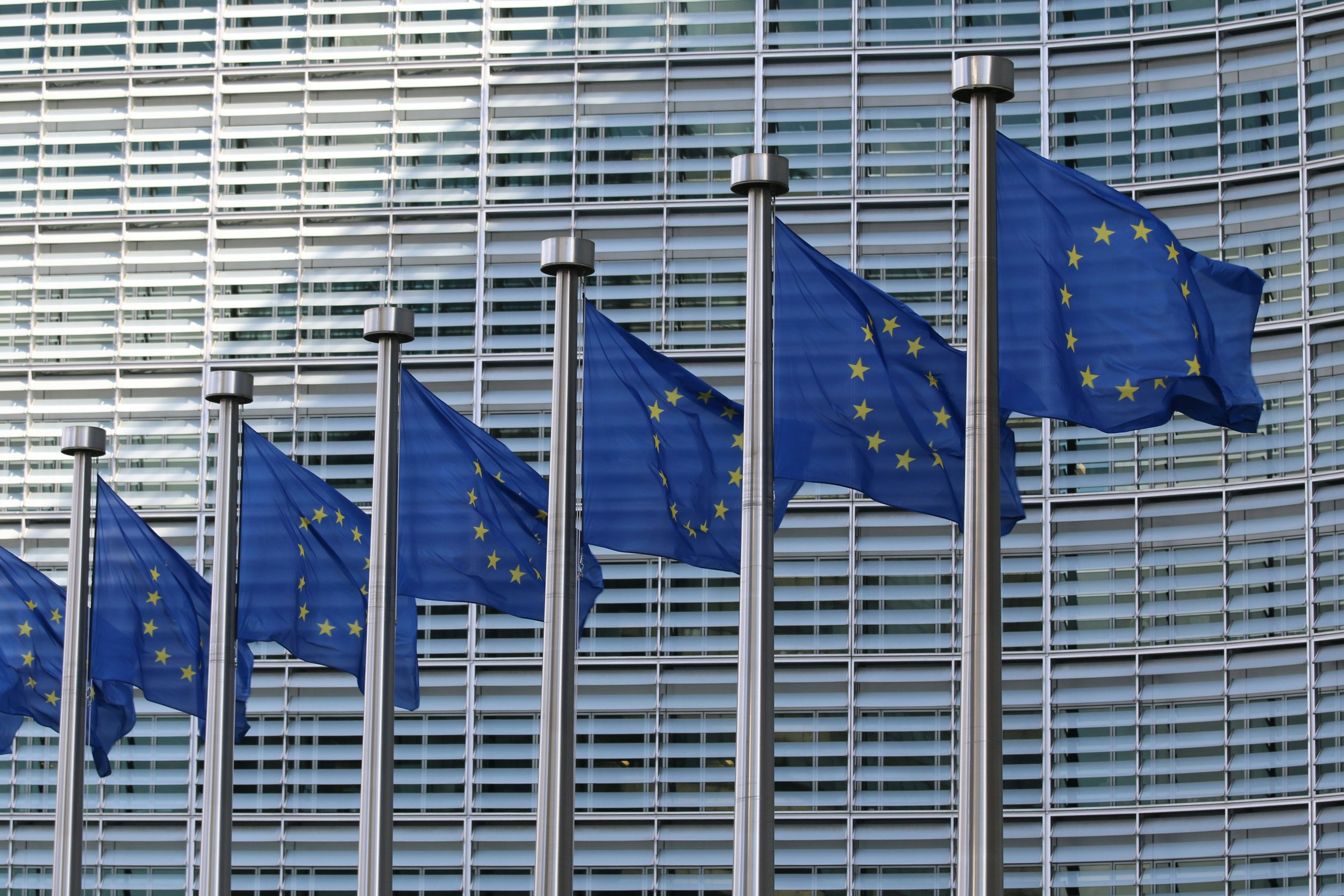
Navigate the new normal and understand EU’s Green Claims Directive
In a landmark decision, the EU Parliament has adopted its position on the Green Claims Directive, targeting the greenwashing problem—where companies make misleading or unsubstantiated claims about their products' environmental benefits. As buzz around the directive grows, we want to clarify its status and implications for businesses and consumers.
